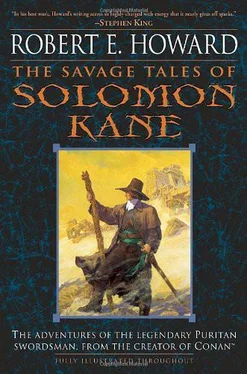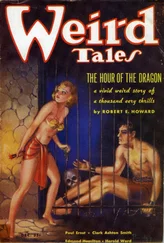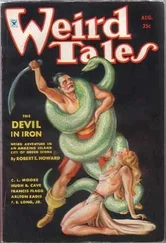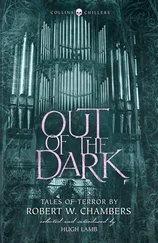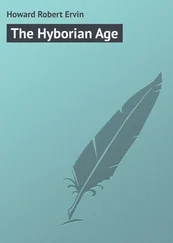“sat Richard Grenville there?
“The dogs of Spain,” said Solomon Kane,
“by God, we fought them fair!
“For a day and a night and a day again
we held their fleet at bay,
“Till their round shot riddled us through and through
and ripped our masts away.
“Where is Bess?” said Solomon Kane.
“It racked me hard to go –
“But I heard the high tide grate the keel
and I heard the sea-wind blow.
“I left her – though it racked my heart
to see the lass in tears –”
“In the quiet churchyard by the sea
she has slept these seven years.”
The sea-wind moaned at the window pane
and Solomon bowed his head.
“Ashes to ashes, dust to dust,
and the fairest fade,” he said.
His eyes were mystical deep pools
that drown unearthly things,
And Solomon lifted up his head
and spoke of his wanderings.
“My feet have tracked a bloody way
across the trackless sands,
“Mine eyes have looked on sorcery
in the dark and naked lands.
“And I have known a deathless queen
in a city old as Death;
“Her smile was like a serpent's kiss,
her kiss was Lilith's breath.
“And I have roamed in grisly hills
where dead men walked by night,
“And I have seen a tattered corpse
stand up to blast men's sight.
“And I have heard the death-chant rise
in the slaver's barracoon,
“And I have seen a winged fiend fly,
all naked, in the moon.
“My feet are weary of wandering
and age comes on apace –
“I fain would dwell in Devon now,
forever in my place.”
The shouting of the ocean-winds
went whistling down the gale,
And Solomon Kane raised up his head
like a hound that snuffs the trail.
A-down the winds like a running pack,
the hounds of the ocean bayed,
And Solomon Kane rose up again
and girt his Spanish blade.
Hands held him hard but the vagrant gleam
in his eyes grew blind and bright,
And Solomon Kane put by the folk
and went into the night.
A wild moon rode in the wild white clouds,
the waves their white crests showed
When Solomon Kane went forth again,
and no man knew his road.
They saw him etched against the moon
on the hill in clouds that thinned,
They heard an eery, echoed call
that whistled down the wind.
Out of the tavern into the night
went Solomon Kane once more,
He heard the clamor of the winds,
he had harked to the ocean's roar.
Appendices
A Short Biography of Robert E. Howard
by Rusty Burke
Robert Ervin Howard (1906-1936) ranks among the greatest writers of adventure stories. The creator of Conan the Cimmerian, Kull of Atlantis, Solomon Kane, Bran Mak Morn, Francis X. Gordon (“El Borak”), Sailor Steve Costigan, Breckenridge Elkins, and many other memorable characters, Howard, during a writing career that spanned barely a dozen years, had well over a hundred stories published in the pulp magazines of his day, chiefly Weird Tales, but including Action Stories, Argosy, Fight Stories, Oriental Stories, Spicy Adventure, Sport Story, Strange Detective, Thrilling Adventure, Top Notch, and a number of others. His stories consistently proved popular with the readers, for they are powerfully vivid adventures, with colorful, larger-than-life heroes and compelling, rivetting prose that grabs the reader from the first paragraph and sweeps him along to the thrilling conclusion. So great was the appeal of Howard's storytelling that it continues to capture new generations of readers and inspire many of the finest writers of fantasy and adventure.
Robert E. Howard was born on January 22, 1906, in the “fading little ex-cowtown” of Peaster, Texas, in Parker County, just west of Fort Worth. The Howards were living at the time in neighboring Palo Pinto County, on the banks of Dark Valley Creek. Robert's father, Dr. Isaac Mordecai Howard, presumably moved his wife temporarily to the larger community of Peaster so that she would have readier access to medical care when her pregnancy came to term. Hester Jane Ervin Howard, Robert's mother, did not enjoy robust health, to put it mildly: there was a history of tuberculosis in her family, and Mrs. Howard was sickly for much of Robert's life. Isaac Howard was a country doctor, a profession which entails frequent lengthy absences from home. Thus he may have wished to be certain that his wife of two years, experiencing her first pregnancy in her mid-thirties, would have adequate medical attention when she delivered their first, and as it happened, only child.
Isaac Howard seems to have been possessed of a combination of wanderlust and ambition that led him to move his family frequently in search of better opportunities. By the time he was eight, Robert had lived in at least seven different, widely scattered Texas towns. Finally, in 1915, the family moved to the community of Cross Cut, in Brown County, and they would live in this vicinity, with moves to Burkett (in Coleman County) in 1917 and finally to Cross Plains (Callahan County) in 1919, for the rest of Robert's and his mother's lives.
Cross Plains in the 1920s was a small town of approximately 2000 souls, give or take a thousand, but like much of the Central West Texas region, it went through periodic oil booms. Two town-site booms, in particular, brought hundreds, perhaps thousands, of temporary inhabitants who set up camps just outside the town limits, jammed the hotels to capacity, and rented rooms or beds in private homes. The lease men, riggers, drillers, tool dressers, and roughnecks who followed the oil were followed in their turn by those who sought to exploit them for profit, from men or women who set up temporary hamburger stands to feed them, to gamblers and prostitutes who provided “recreation,” to thugs, thieves and con men who simply preyed on them. An oil boom could transform a sleepy little community into a big city in no time at all, in those days: when oil was discovered in Ranger, Texas (about 40 miles from Cross Plains) in 1917, the population increased from 1,000 to 30,000 in less than a year, and similar growth was reported in nearby Breckinridge. Cross Plains never saw anything like that kind of growth, but certainly the few thousand who did come transformed it into a wilder and rowdier town than usual. One resident recalls her family driving into town on Saturday night just to watch people, hoping fights would break out. They were rarely disappointed. Of the atmosphere in a boom town, Howard wrote: “I'll say one thing about an oil boom: it will teach a kid that Life's a pretty rotten thing about as quick as anything I can think of.” Just as quickly as the town grew, however, it could decline: when the oil played out, the speculators and oil-field workers and their camp-followers moved on. The influence of this boom-and-bust cycle on Howard's later ideas about the growth and decline of civilization has often been overlooked.
Bob Howard attended the local high school, where he was remembered as polite and reserved, and to make pocket money he worked at a variety of jobs, including hauling trash, picking up and delivering laundry for dry-cleaners, clerking in stores, loading freight at the train station, etc. He had some close friends among the local boys, but there seem to have been none who shared his literary interests.
Bob's literary interests had probably been encouraged from an early age by his mother, an ardent poetry lover. He was an avid reader, claiming even to have raided schoolhouses during the summer in his quest for books. While this story is probably hyperbolic, it does give an indication of his thirst for reading material, which was a rare commodity in the communities in which the Howards lived, most of which had no libraries, much less bookstores. Bob seems to have had an extraordinary ability to read quickly and to remember what he had read. His friends recall their astonishment at his ability to pick up a book in the library or a store or someone's house, to quickly turn the pages and run his eyes over them, faster than they thought anyone could actually be reading, and later to be able to relate to them with perfect clarity what he had read. His library, presented by his father to Howard Payne College after his death, reveals the breadth of his interests: history and fiction are dominant, but also represented are biography, sports, poetry, anthropology, Texana, and erotica. Near the end of his life he wrote to H.P. Lovecraft:
Читать дальше
